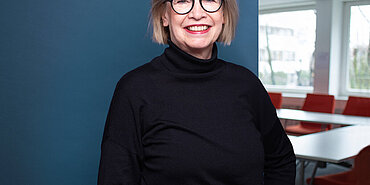ijab.de: German-Turkish youth exchanges can be challenging at the best of times. Jan Taşçı, when the Coronavirus pandemic arrived in March, what went through your head?
Jan Taşçı: Two things. All of us spent March and the months after wondering what the restrictions imposed due to the pandemic would mean for youth exchanges. This was an unprecedented situation. There was no manual to tell us how to respond and what to do. That said, when you’re dealing with German-Turkish youth exchanges, often things change profoundly from one day to the next. So we already knew how to respond to and cope with challenges. It’s a huge asset.
ijab.de: Among the changes was the need to switch face-to-face activities to a virtual space. Your organisation, the German-Turkish Youth Bridge, responded very quickly to that.
Jan Taşçı: That was an exciting process, and speed was indeed of the essence. We asked ourselves what spaces were still available for people to interact. Because that, in a nutshell, is at the heart of our work: to get people together. So we wanted to create a space like that really quick. And the only available option at the time was a virtual space. We reached out to the institutions that fund us and discussed possible solutions. It was amazing to see how quick they were to embrace this new challenge. In March and April there was a lot of openness to change, and they were very supportive of our ideas. At the same time, the active participants in the German-Turkish youth exchanges didn’t want to suspend their activities either – they wanted to stay in touch and keep things going. So we decided to extend our small-scale funding programme to include digital formats, too
ijab.de: Can digital formats replace in-person exchanges?
Jan Taşçı: That’s a binary logic that we prefer not to follow. It’s not a case of one thing versus another – physical versus digital. Our philosophy is that in-person exchanges are either the end point or start point of an activity. And as for digital exchanges, this is a unique opportunity for us to try out what works and what doesn’t. It’s a collective learning experience – and I would say that it’s a great opportunity for the international youth work community as a whole. There’s so much willingness to embrace new approaches at the moment. We’re not learning so we can get through the crisis – we’re learning so we can apply new approaches when things return to normal.
ijab.de: You just mentioned your organisation’s small-scale funding programme and your decision to amend the eligibility rules. What is this funding instrument designed to do?
Jan Taşçı: Basically, it’s good for everything. We believe in making the instrument as flexible as possible, because as an organisation we are not entitled to determine what should or should not be done – that’s for the colleagues who implement German-Turkish exchanges to decide. If a youth centre contacts us to tell us they need tablet computers for a virtual exchange because their participants can’t afford their own, then they know best. What’s more, now more than ever we need to keep an eye out for the needs of underrepresented target groups. They cannot be left behind.
But our small-scale funding instrument is not the only scheme we have. We also provide funding for what are known as model projects, with funding from Germany’s Federal Foreign Office. It’s obvious that at the moment, digital projects fit right in with this instrument. The overwhelming response we had when we sent out this year’s funding announcement shows how many creative ideas are out there right now. We received so many applications that we’ve not been able to approve them all.
ijab.de: How are the Turkish partners responding to the current situation? My impression is that there’s a strong affinity to social media in Turkey, which could be very helpful given the situation.
Jan Taşçı: Applications are always submitted by a tandem, so I would expect the same level of interest in digital formats on both sides. As for affinity to social media, you’re right. Nowhere else is Twitter more popular than in Turkey. But we don’t know to what extent this influences exchanges. Neither do we know what technical equipment the organisations have or how willing they are to try out new and unfamiliar tools. When the year ends, we’ll have to take stock and can then build on what we have learned for 2021. Maybe by then, solutions will have turned up to problems that the community has always had. Problems that, unlike the Coronavirus pandemic, haven’t been imposed on us from the outside. For instance, the issue of “green exchanges“ – meaning the CO2 footprint of our exchanges – and how we can rethink exchanges to minimise their impact. Digital exchanges cannot replace in-person encounters, but maybe they can be a suitable complement and help make exchanges more sustainable.




